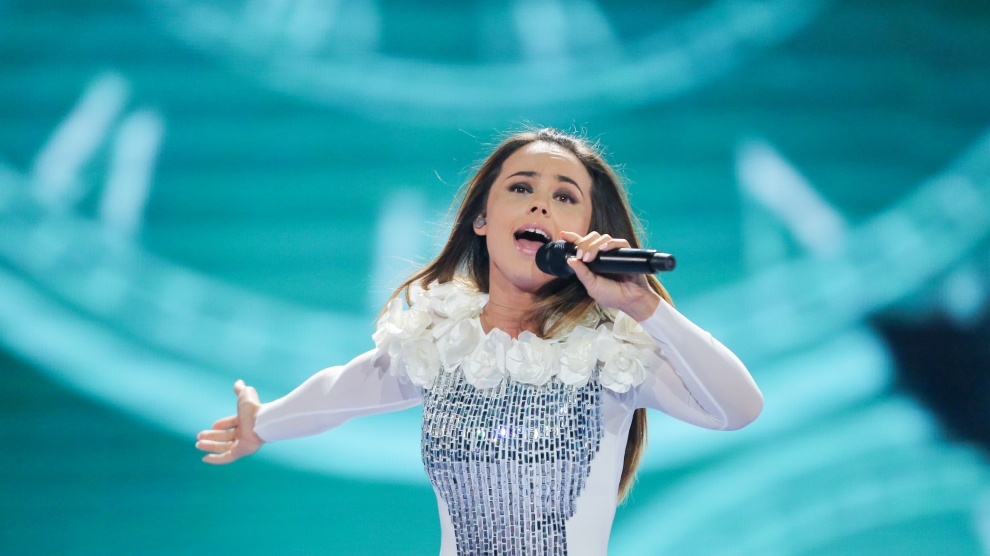Our weekly digest of articles about emerging Europe published elsewhere this week, all of which caught our eye and all of which are well worth your time. Listing them here, however, does not necessarily mean that we agree with every word, nor do they necessarily reflect Emerging Europe’s editorial policy.
—
Why can’t Central Europe win Eurovision?
Over the last six decades, 27 countries have won the Eurovision Song Contest, ranging from Portugal in the far west of mainland Europe, all the way across to Azerbaijan on the shores of the Caspian Sea. Most countries in Central Europe have never won the annual kitsch-fest, however.
—
Croatia’s fascist movement is on the rise yet again
Germany has outlawed the symbols of its Nazi past. It’s time the same was done in Croatia to stop the rehabilitation of the Ustaša movement while authorities turn a blind eye.
—
New film tells tale of North Korean orphans sent to Europe
During and after the 1950-53 Korean War, North Korea sent thousands of orphans it couldn’t feed to Eastern European communist allies
—
Uzbekistan dismantles 70-year-old chain of cotton slavery
Farmers couldn’t choose what to grow. Students had to leave school to pick cotton. Now, Central Asia’s most populous nation is fundamentally dismantling that system.
—
The coronavirus crisis has brought new realism to Estonian-Finnish relations
The coronavirus has given a new boost to cooperation among the three Baltic states. Estonia is happy about relations with neighbouring Latvia being better than ever. At the same time, many Estonians feel disappointed at Finland’s actions during the crisis. Perhaps Estonia’s expectations of its northern neighbour were too high. In addition, domestic politics has added a new bitter flavour to the fraternal relationship.
—
Kontrola: the LGBTQ TV show breaking into Poland’s mainstream via YouTube
Anti-LGBTQ rhetoric has ramped up in Poland in the run-up to the country’s presidential elections. Can a new web series chronicling queer love reach a new audience with a message of tolerance?
—
Treasure hunting targets Bulgaria’s archaeological sites
Bulgaria is a country of many unexcavated archaeological sites with cultural treasures as yet unearthed. However, these archaeological sites are regularly plundered by treasure hunters looking to sell on what they find to collectors.
—
What could the prosecution of Petro Poroshenko mean for Ukrainian democracy?
Former Ukrainian President Petro Poroshenko appeared in court on June 18 for a pretrial hearing on charges related to alleged abuse of office during his presidency. This is one of around twenty cases involving the ex-president that are currently being pursued in what critics have labeled a clear-cut case of political persecution.
—
The first ever Spartakiad mass exercise and how it was influenced by the Sokol movement
This week marked the 65th anniversary since the first Spartakiad was held in Czechoslovakia. These mass synchronised exercise events were some of the largest the world has ever seen and took place on the specially built huge Strahov Stadium in Prague. A lesser known fact is that they were very much influenced by the older Sokol slet gatherings and were often organised with the help of Sokol leaders.
—
Poland’s energy U-turn: Government steps up efforts to reduce coal use
As renewable energy costs plummet, Poland’s governing party has gone from a blocker to a booster of wind farms.
—
Belarusian spring? What we know about Belarusian society
Self-organisation, solidarity and politicisation – these are so far the three key words of the Belarusian Spring of 2020.
—
Armenia and Azerbaijan’s season of symbolic offensives
Hopes the two countries would find ways to reinvigorate long-stagnant negotiations have faltered, despite the sustained reduction in violations of the Nagorno-Karabakh ceasefire.
—
Unlike many news and information platforms, Emerging Europe is free to read, and always will be. There is no paywall here. We are independent, not affiliated with nor representing any political party or business organisation. We want the very best for emerging Europe, nothing more, nothing less. Your support will help us continue to spread the word about this amazing region.
You can contribute here. Thank you.







[…] Read original article here. […]